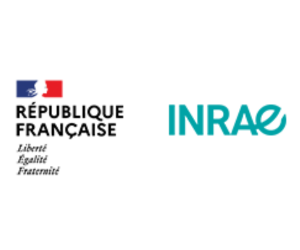
ICOS / ICOS INRAE
Integrated Carbon Observation System
- Description
- Description
ICOS (Integrated Carbon Observation System) is a distributed European research infrastructure consisting of organized networks that measure the greenhouse gas cycle in the atmosphere, continents, and oceans across Europe. ICOS is specifically dedicated to measuring fluxes and concentrations of carbon dioxide (ecosystems, fossil fuels, and cement plants), methane (natural gas, agriculture, and livestock), and nitrous oxide (agriculture, fossil fuels, and fires) from 2016 to 2035.
ICOS helps improve future climate projections and understand feedback loops between climate change, ecosystem management, transition policies, and greenhouse gas cycles, a priority set by the IPCC (Intergovernmental Panel on Climate Change). ICOS also supports the creation of national and territorial greenhouse gas inventories to track emission reduction commitments under the Paris Climate Agreement.
At the European level, ICOS Europe consists of 149 stations organized into three networks:
- An atmospheric network: 40 atmospheric stations measuring the three main greenhouse gases (CO2, CH4, N2O) and tracers;
- An ecosystem network: 86 ecosystem stations measuring the exchange fluxes of greenhouse gases, water vapor, and energy between ecosystems and the atmosphere, as well as carbon stocks in various ecosystem compartments (biomass, soil);
- An oceanic network: 23 oceanic stations equipped with systems on commercial ships or positioned on offshore and coastal buoy networks.
ICOS-France, the French mirror of ICOS, is a multi-partner national infrastructure comprising three founding members: CEA, CNRS, and INRAE, which currently coordinates the infrastructure, along with numerous contributors, including universities. It includes:
- 16 atmospheric stations;
- 18 ecosystem stations covering the main ecosystem types observed in France and two sites in French Guiana;
- One ocean station (France-Brazil ship);
- The Atmospheric Thematic Center (ATC), which handles the processing, analysis, and distribution of atmospheric data from the ICOS Europe network, as well as metrological developments;
- Central laboratories for the analysis of vegetation and soil samples, as well as the European Soil Conservatory, which archives soil samples from all European ecosystem stations of the Ecosystem Thematic Center [INRAE].
The INRAE component of ICOS, a research infrastructure certified by the Institute, represents half of ICOS France's ecosystem stations, or 9 stations. INRAE-ICOS is specifically dedicated to terrestrial ecosystems and focuses primarily on:
- The long-term trajectory of carbon biogeochemistry and greenhouse gases in agro-ecosystems and forests;
- The impact of management practices and environmental factors on greenhouse gas balances at the land surface, at various temporal and spatial scales.
These data are strategically important in the context of rapid environmental changes in human-impacted ecosystems (agriculture and forestry). ICOS is a "Landmark" on the ESFRI Roadmap and is a Very Large Research Instrument (TGIR) of France's national research strategy.
Thematiques
Tags
Entities




